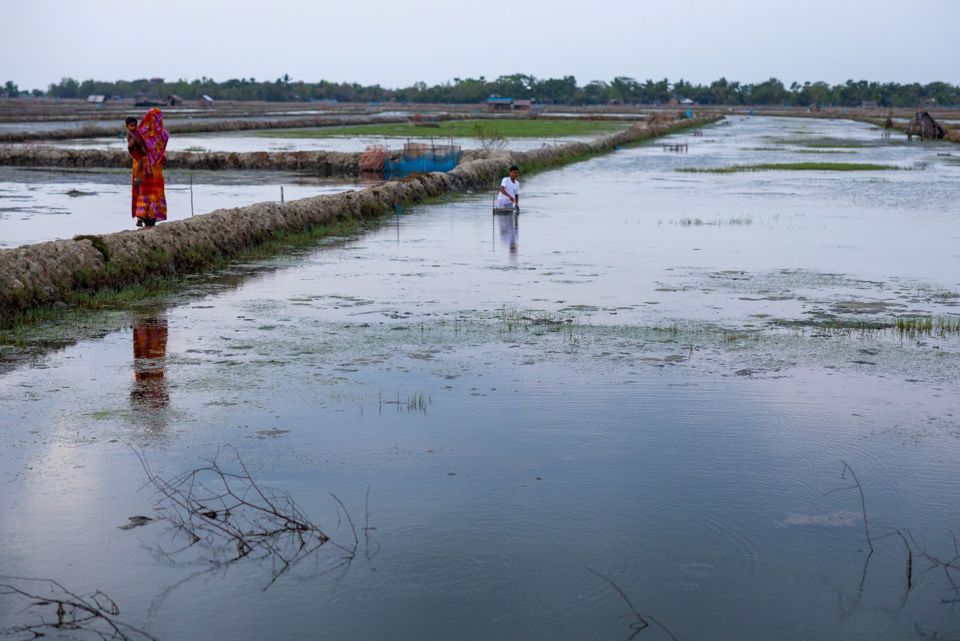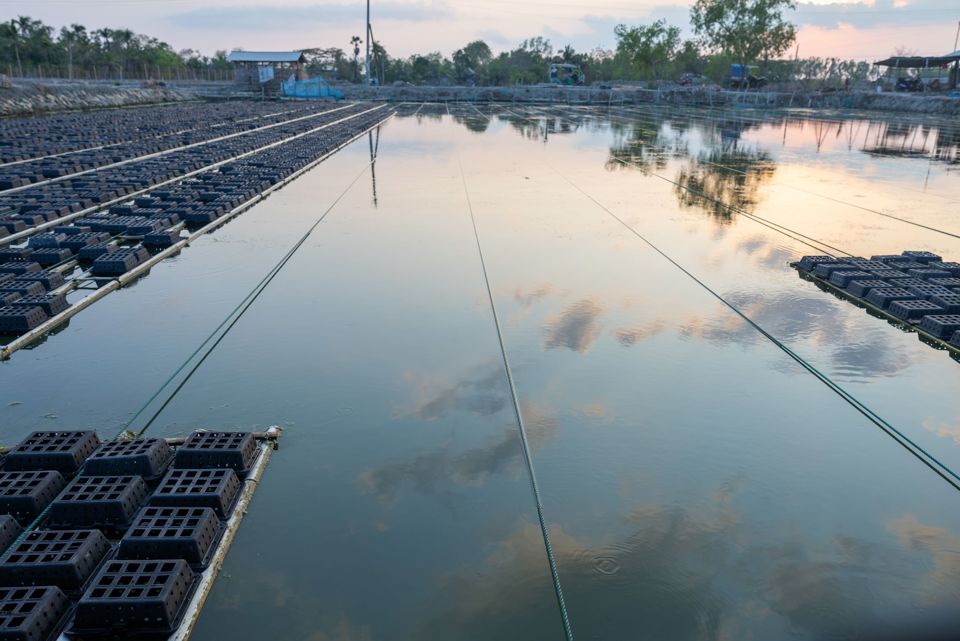Aurora and Mark from the content and communication teams visited Bangladesh in May for a content collection trip. Trips like these are a vital way for us to share stories from the field with our generous community of supporters.
This is part one of a two-part series. Read part two here.

Monoranjon and his wife Anita working on their farm. Photo: Mark Harding/Caritas Australia
We arrived in Bangladesh after the country had been grappling with a severe heatwave. The temperature had regularly been in the mid-40s, and when combined with the high humidity it had felt even hotter on the ground. The extreme weather conditions have impacted our partners at Caritas Bangladesh who were unable to do their work for several days. We were also informed that across the country people had died, including some school students.
Bangladesh is on the front lines of the climate emergency and is one of the most vulnerable countries in the world for climate change. The first stop was the Khulna region, where our partner, Caritas Bangladesh, is implementing a program aimed at helping communities to improve their livelihoods in the face of climate change, through the cultivation of adaptable crops, training in crab and prawn fishing techniques, disaster preparedness and other livelihood support. The region is facing multiple climate related issues including slow mangrove growth resulting from changed water and soil salinity, erratic rainfall, increased storm severity and heatwaves.
It was a 5am start and an hour-long rickshaw ride along unpaved roads to Monoranjon’s farm, a trip we took every day for 3 days as we profiled Monoranjon’s life with his wife and children in rural Bangladesh. We got to see them in their daily life, catching prawns, crabs and fish in the waterways, taking care of their crops and livestock, buying and selling produce at the markets, joining community meetings and interacting with their neighbours. They are a kind and generous family, who are very grateful to Australia for the support that is allowing them to maintain their livelihoods and send their daughter to school. They live a hard life but are very positive about things, and we shared many moments of joy and laughter with them.

Fishing for prawns in Khulna region, Bangladesh. Photo: Mark Harding/Caritas Australia
The content team are not afraid to roll our sleeves up, get dirty and look a little foolish in order to get the perfect shot. Highlights from our time in Khulna include Aurora falling face first into the dirt while positioning herself for a shot and Mark needing to be held up by several people after his feet sank ankle deep into slippery mud on a riverbank. Not to mention the copious amount of sweat that soaked through our clothes each day.

Waterways in the Khulna region, Bangladesh, are sources of crabs, prawns and fish for the local community. Pictured here is a crab farm. Photo: Mark Harding/Caritas Australia
Monoranjon’s story is incredible, we’re so grateful to him for sharing it with us and we can’t wait to share it with you later this year. The Khulna region is suffering, but it is beautiful and the people who live there are resilient and hopeful.
After we left, Cyclone Remal swept through, causing widespread damage affecting over 400,000 people in the region. The Caritas Bangladesh team have been on the ground, supporting affected communities through the region.
Part two covers our visit Cox’s Bazar, home to the world’s largest refugee camp.

















